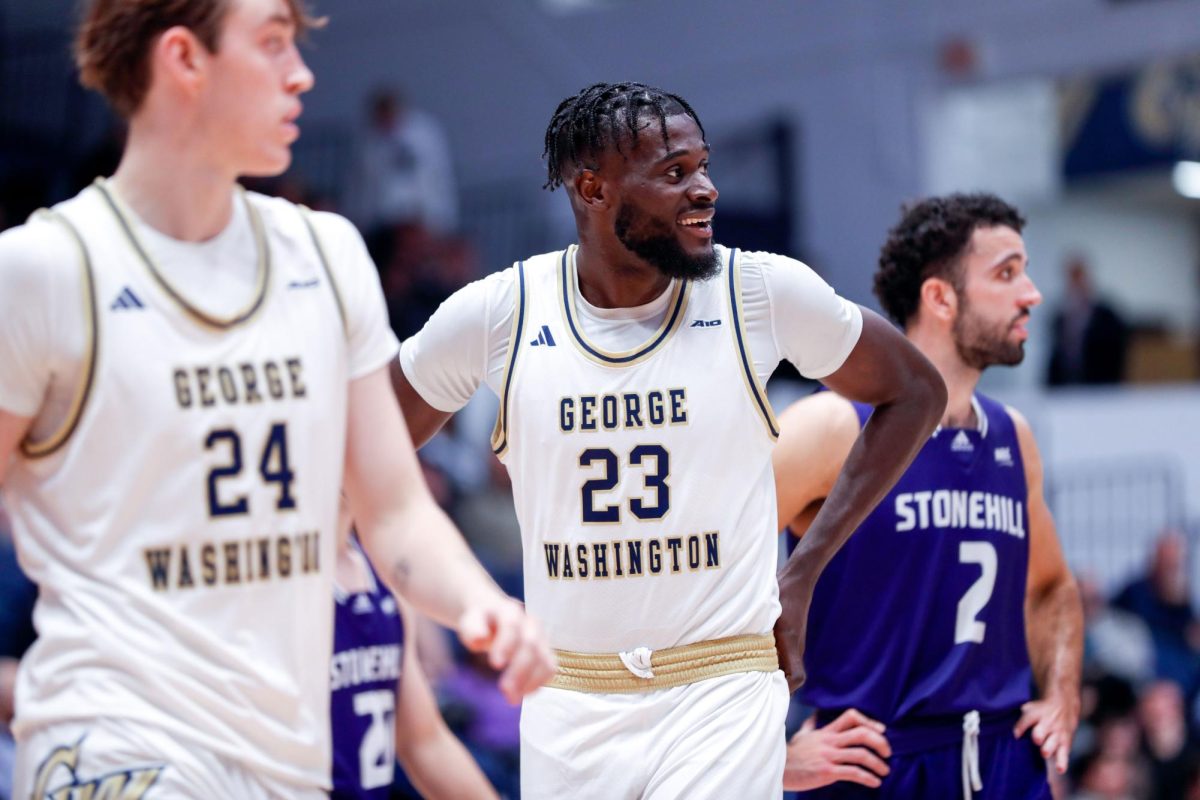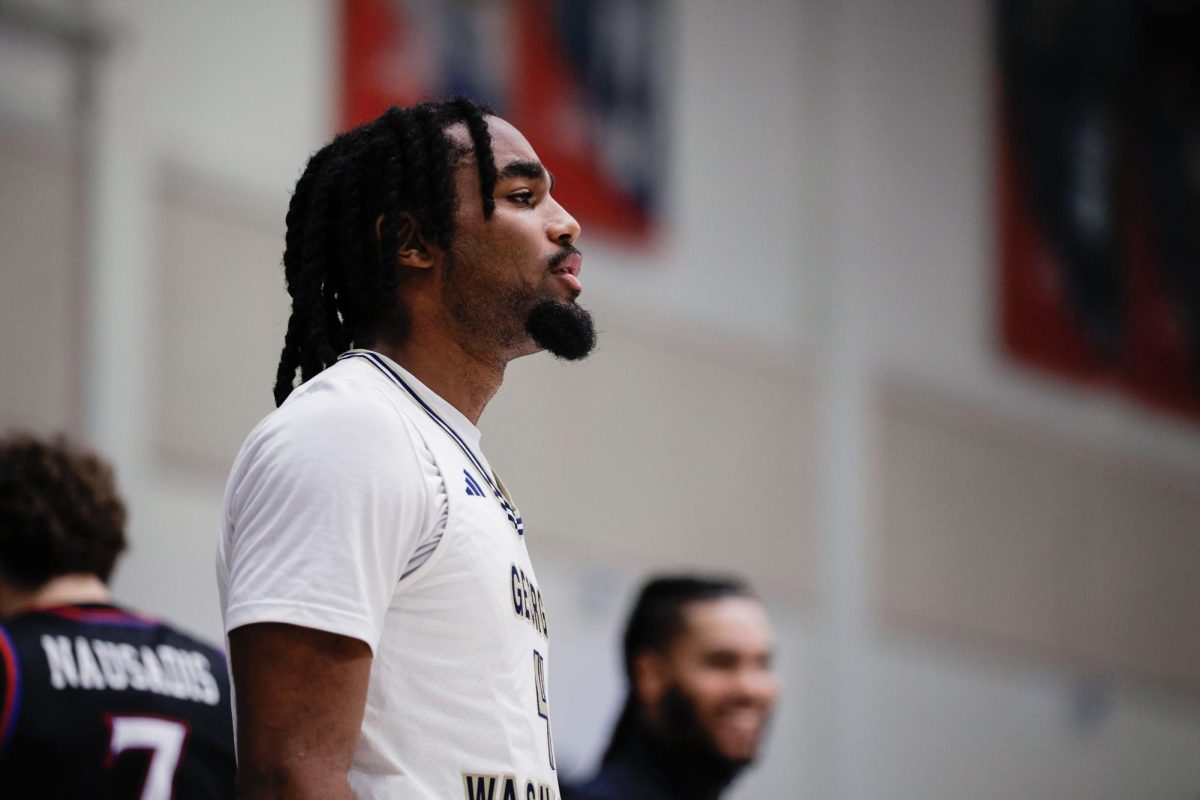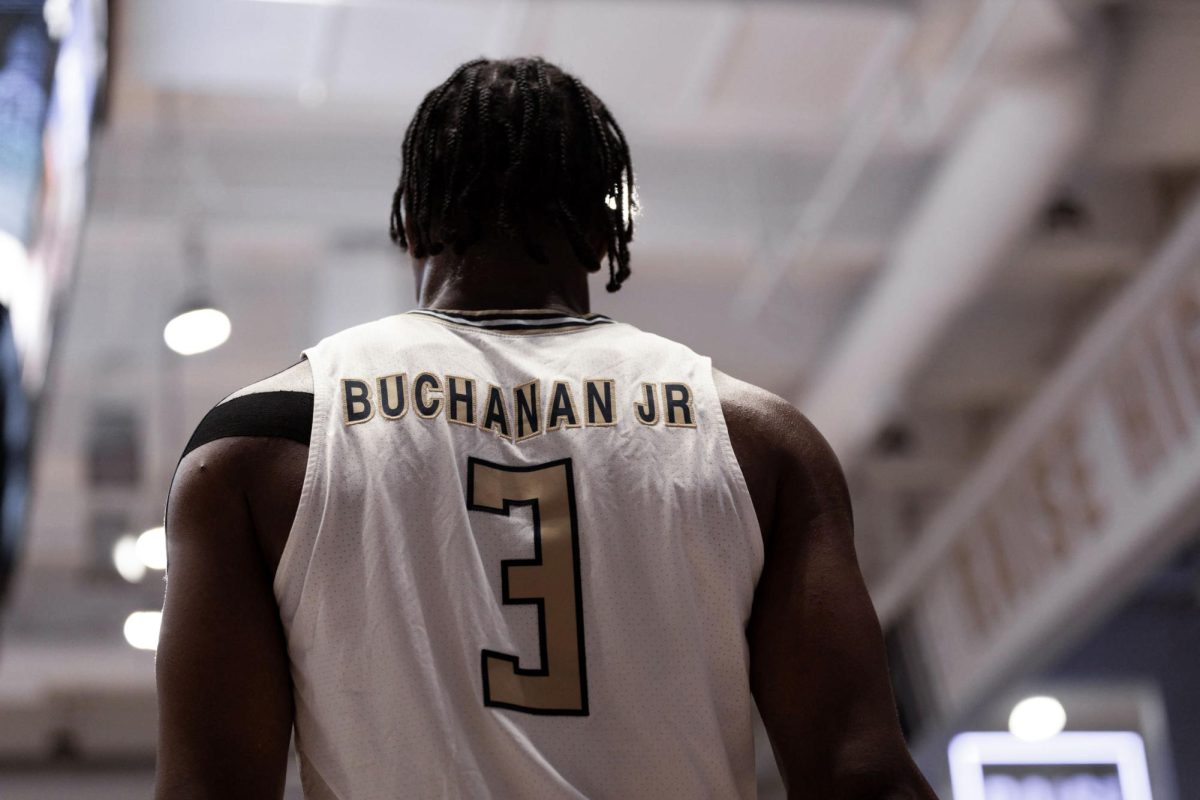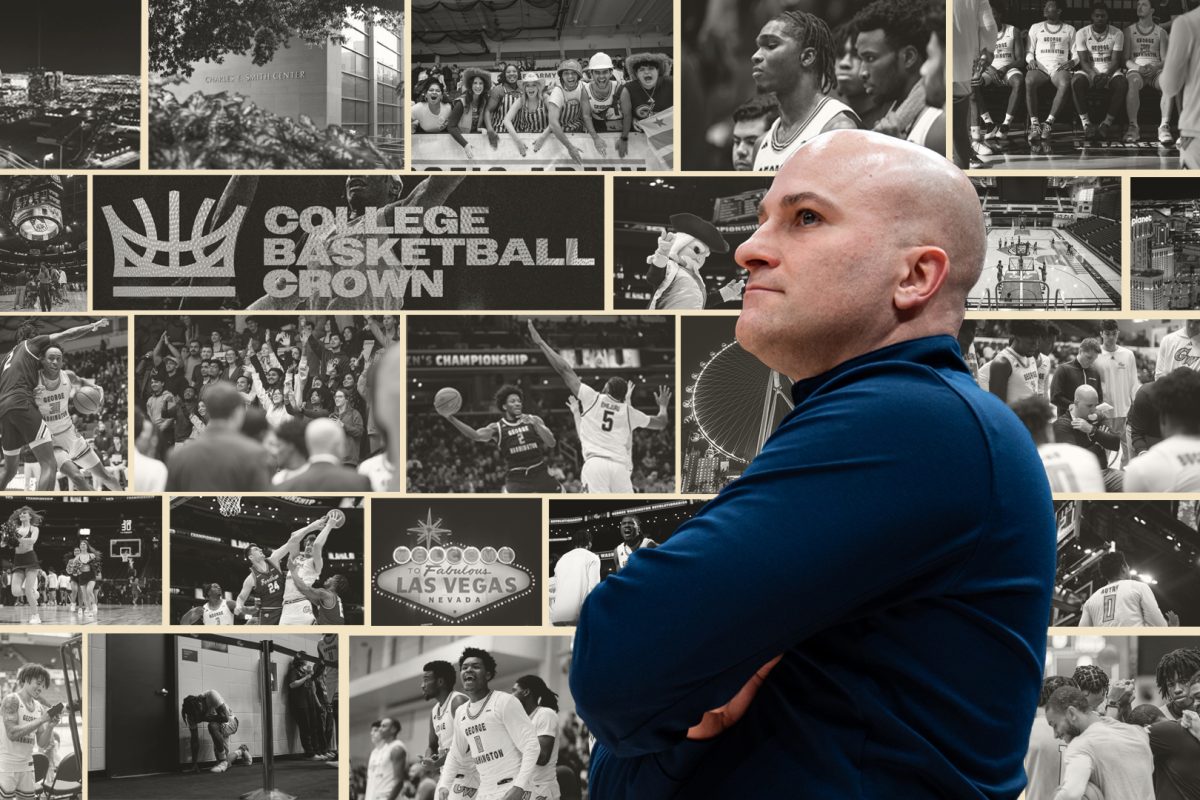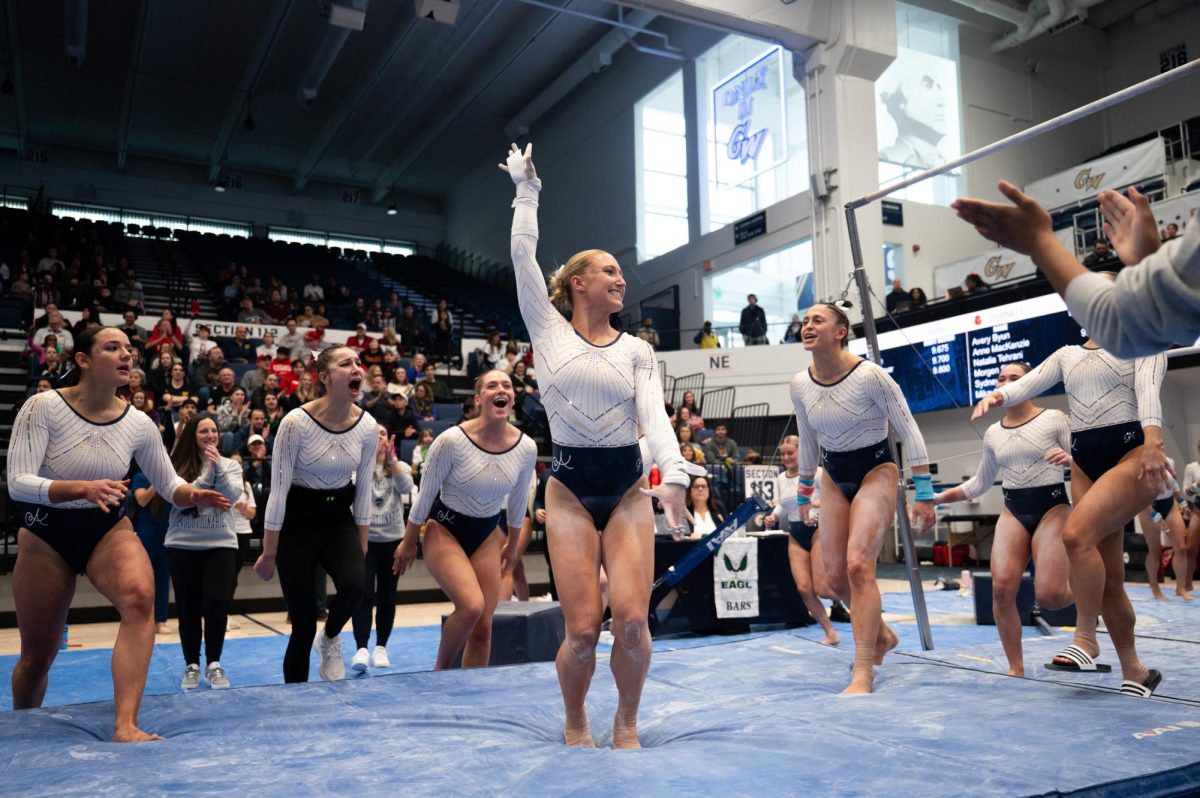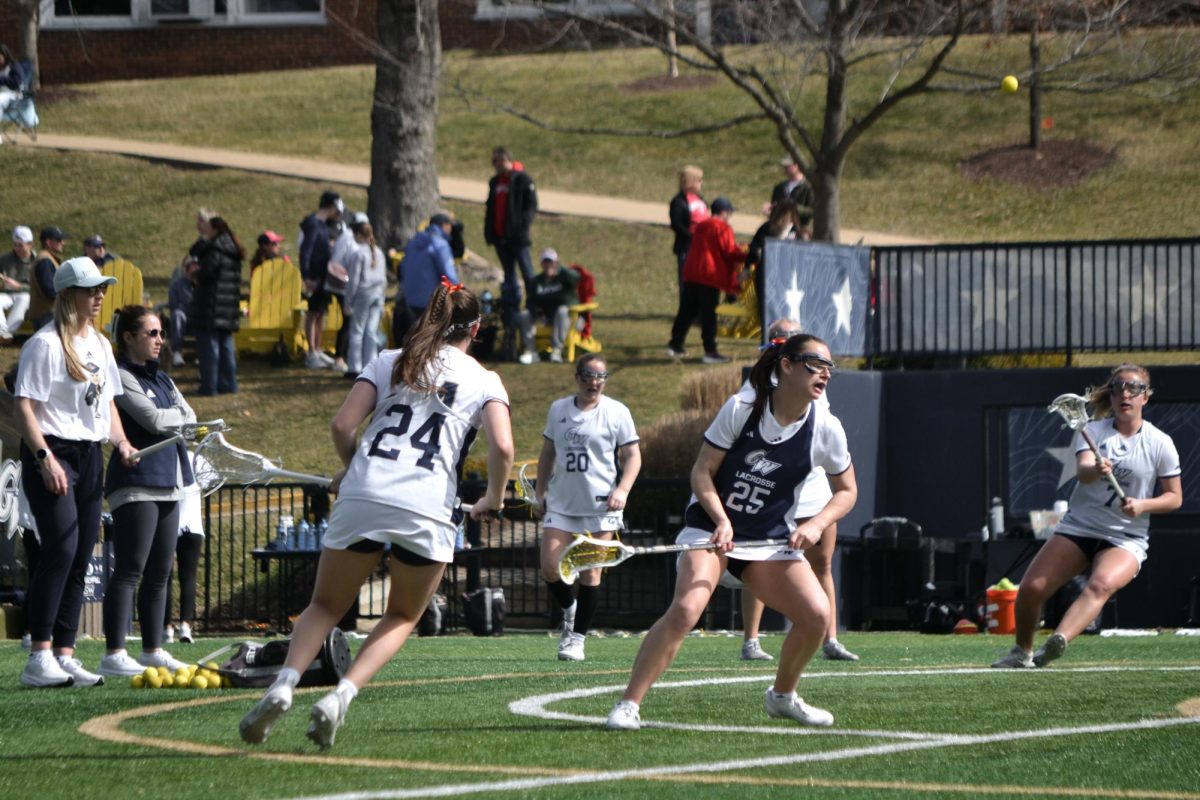Clinging to a 4-point overtime lead against Navy in the Smith Center, GW was in desperate need of a stop.
With 26 seconds left to take the lead, Navy’s Austin Begini barreled toward the basket. He got past one defender and went up for the layup, shooting the ball over another. But then, from behind, Babatunde Akingbola rose into the air like a breaching shark on the hunt for prey and smashed the ball out of bounds.
The Smith Center crowd erupted. The announcer struggled to find the words. Akingbola howled, flexed and danced toward the sideline. He just notched his 11th block of the game, breaking the 47-year-old single-game school record. The Revs went on to sink Navy 79-77.
“I love the process,” said Akingbola. “I love the end goal. I love everything about basketball.”
Akingbola only started playing basketball at 15 years old. For most, it takes a lifetime of dedication to make it as a Division I hooper. But the lengthy Nigerian native credits his 7-foot-5 wingspan for helping him reach the top of collegiate basketball — literally and figuratively.
It hasn’t taken long for the graduate transfer out of Auburn to leave his size 17 footprints on George Washington’s campus, either.
“I am not going to lie, that day I was feeling good,” Akingbola said, looking back on his record-breaking performance. “I told one of my teammates, ‘CJ, I’m going to have 10 blocks today.’”
Add fortune teller to the 6-foot-10 star’s list of talents, because the joking statement came true. Akingbola couldn’t sleep that night. Not because he was overthinking the game but because his phone was blowing up with congratulations.
His blocks gave him both a new record and a new nickname. Akingbola became “Predator” after GW’s Kevin Hall, who previously held the block record and played the titular role of the 1987 cult classic. But those who knew him before his record-breaking game more commonly refer to him as “Stretch.” The label, used by the team, coaches and fans, was invented by high school teammates in Georgia who had a difficult time pronouncing his seven-syllable full name.
The polyonymous center currently averages 4 points per game but sits third in the NCAA for blocks per game, averaging 3.2 a night and 64 in the season, good for second overall. He is aiming to climb to first in the nation.
Akingbola feels his pride in playing defense comes from his ego.
“I don’t like somebody scoring on me regardless of who you are,” he said.
Shot-blocking prowess is something that GW has not seen in recent years, and Akingbola fills a necessary gap. He often spends his games on defense hunting around the paint, looking for opportunities where he can go up and swat a shot away.
Akingbola moved to the States from Ogun, Nigeria, in 2014. His mother, a teacher, was not amused by sports culture. She hoped he would become a doctor. The two compromised that if Akingbola got a degree, he could play basketball.
“She’s happy now. Thank God,” the grad student joked.
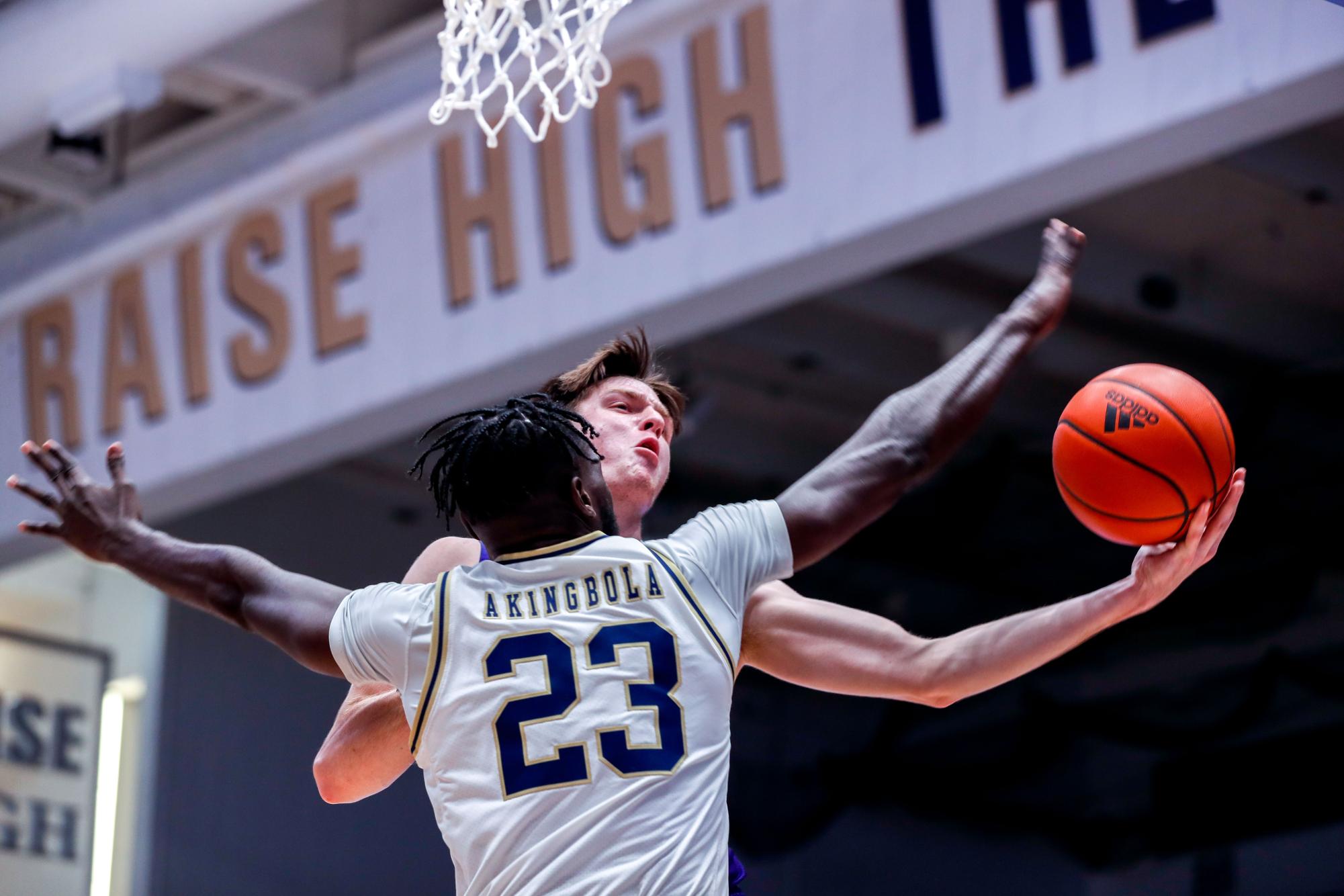
Before landing in the nation’s capital, Akingbola spent four years at Auburn. He had zero starts for the Tigers, which is what made his first game at GW so emotional. Joining the starting five in the Rev’s season debut was a big experience for Akingbola, who shared that playing and having people watch him again was enlightening. Akingbola and the team have definitely garnered a following. With 2,585 fans in the intimate yet electric Smith Center, GW reported its highest-attended game of the season Jan. 15 against George Mason. The rim guardian recorded 11 rebounds and five blocks for the audience.
GW’s internationally packed roster is what sold Akingbola to transfer.
“People that think like me and have a different culture than me, here that’s what gives me the edge,” Akingbola said. “Coming from a different country and knowing that other people came from a different country kind of gives you joy.”
The Revolutionaries have four international students from three different continents on their 15-man team.
Akingbola is a big man with a bigger personality. Alongside his defensive prowess, his energetic persona on the court shines. From postgame dances to comedic interviews on the team’s social media pages, his expressions certainly entertain, with dances to the GW Fight Song after wins becoming commonplace. But out of the gym, he’s more reserved.
“I would say on the court and in the locker room, I’m always like that,” Akingbola said. “But off the court, I’m kind of quiet and in my room a lot.”
A typical game day starts the night before for Akingbola, who goes to bed at 10 p.m. to ensure nine hours minimum of rest before a competition. He wakes up and heads straight to campus’ beloved GW Deli. After a signature Revs breakfast, he treks one block to the gym for a shoot-around. Then comes a team meal with T-minus four hours to tip-off. After a shower and one-hour power nap, it’s back to the Smith Center and into the locker room, jamming African music. Akingbola is now ready to dominate.
With 12 games left in the season, Akingbola and the team have one goal: win. He doesn’t care if he is sitting on the bench or battling on the court as long as the Revs are winning. Akingbola noted the team takes accountability for losses, referencing back-to-back falls against UMass and Richmond during conference play. Regardless of the results, his fellow Revolutionaries fight for each other.
“And that’s what it’s all about,” Akingbola said.
Akingbola asks fans to keep being supportive as he closes out his first and final season donning buff and blue.
“A lot of people know my story,” he said. “From Nigeria to coming to school out here, going to Auburn and not playing a lot, coming to GW and showing my talent — I’m grateful. That was the thing for me.”


